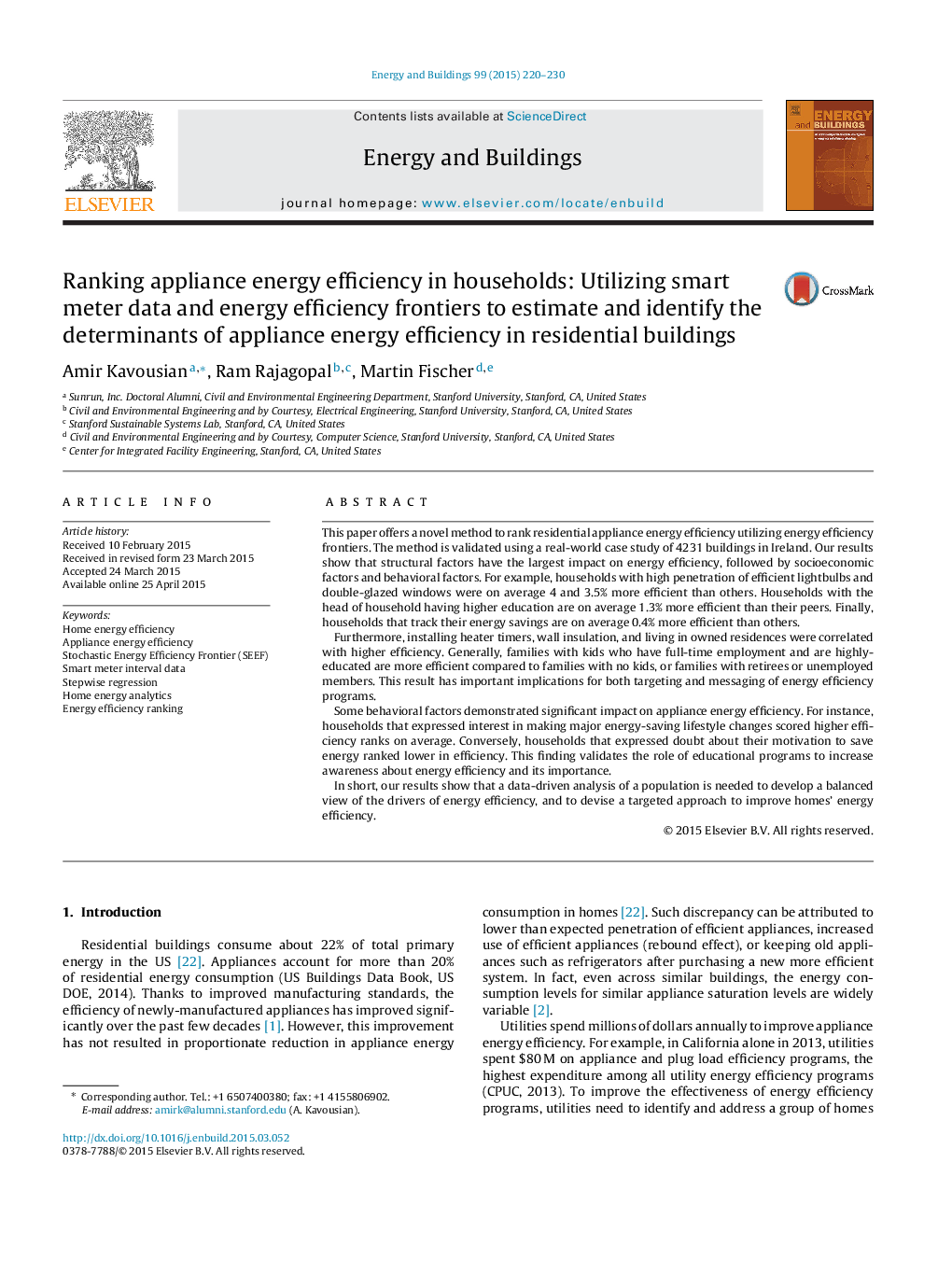| کد مقاله | کد نشریه | سال انتشار | مقاله انگلیسی | نسخه تمام متن |
|---|---|---|---|---|
| 262506 | 504035 | 2015 | 11 صفحه PDF | دانلود رایگان |
• factors (e.g., efficient lightbulbs) have the largest impact on energy efficiency.
• Owned residences were on average 6% more efficient than rented homes.
• Families with at least one highly-educated member were on average more energy efficient.
• The intent to save and actual savings were aligned in our sample.
This paper offers a novel method to rank residential appliance energy efficiency utilizing energy efficiency frontiers. The method is validated using a real-world case study of 4231 buildings in Ireland. Our results show that structural factors have the largest impact on energy efficiency, followed by socioeconomic factors and behavioral factors. For example, households with high penetration of efficient lightbulbs and double-glazed windows were on average 4 and 3.5% more efficient than others. Households with the head of household having higher education are on average 1.3% more efficient than their peers. Finally, households that track their energy savings are on average 0.4% more efficient than others.Furthermore, installing heater timers, wall insulation, and living in owned residences were correlated with higher efficiency. Generally, families with kids who have full-time employment and are highly-educated are more efficient compared to families with no kids, or families with retirees or unemployed members. This result has important implications for both targeting and messaging of energy efficiency programs.Some behavioral factors demonstrated significant impact on appliance energy efficiency. For instance, households that expressed interest in making major energy-saving lifestyle changes scored higher efficiency ranks on average. Conversely, households that expressed doubt about their motivation to save energy ranked lower in efficiency. This finding validates the role of educational programs to increase awareness about energy efficiency and its importance.In short, our results show that a data-driven analysis of a population is needed to develop a balanced view of the drivers of energy efficiency, and to devise a targeted approach to improve homes’ energy efficiency.
Journal: Energy and Buildings - Volume 99, 15 July 2015, Pages 220–230
